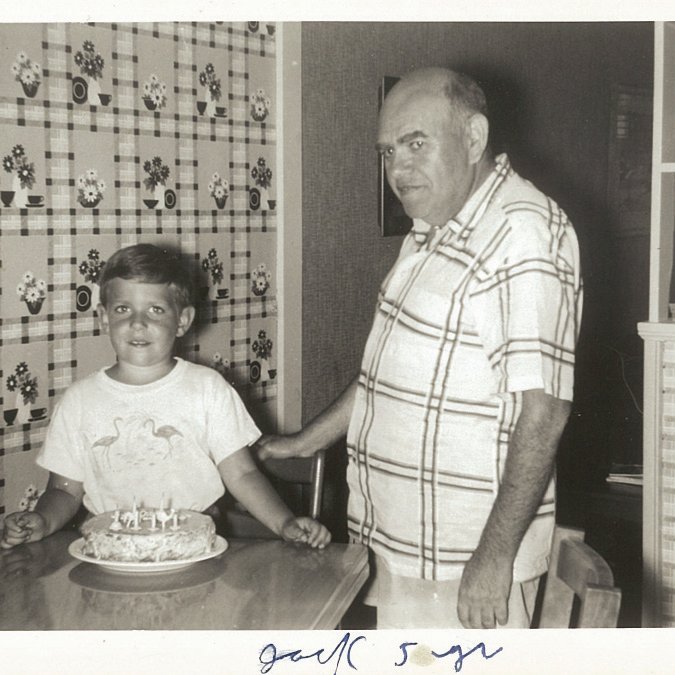A Dad’s memoir: Even in blindness, there can be vision
My Dad was 60 when I was born. Not only was he the oldest Dad on the block, but he was also older than all of my friends’ grandfathers. He was also a blind man having lost his sight in his early 50s. After a few days of blurred vision, he became totally blind. The doctors guessed it was vascular, perhaps an aneurysm on the optic nerve.
It’s said that when one sense goes the others perk up a bit. Well, eight years after my Dad went blind, I came along. Some things in life don’t require good sight.
Growing up with a blind Dad wasn’t easy. Sometimes his blindness frightened me. On occasion I would play blind, walking through a room with my eyes tightly shut feeling my way with outstretched arms and walking in a halting gait wondering how my Dad managed to move around with such effortless grace. Beginning at age nine it was my responsibility to read for my Dad – mostly newspaper columns, and editorials focused on the struggle for civil rights reform.
When I read he listened to me struggle through the tough words with patience. I had to spell out a few. But I’ll never forget the light that would shine from his blind eyes when I got to a phrase – a new fact or a fresh angle on an issue of concern. When that light went on, I knew I was doing a good job. He couldn’t see my smile but I knew he sensed it.
My Dad never went to school one day in his life. He was an immigrant who came to this country at the turn of the century to escape the tyranny of forced “conscription” in the Russian Czarist Army. The teenage boys gathered from the shtetls were not really being recruited or given uniforms...they were forced to run through the woods, used as human target practice, to hone the skills of the Cossack sharpshooters.
Those few who survived feigned death, and crawled back to the village to warn the others, like my father, to run away and escape to the west.
He and a friend, Benny, left their families at age 14, working their way through Poland over three years to save enough to board a ship in Danzig (now Gdansk) for the New World...for survival and to be free.
My Dad spoke five languages, and later in life mastered Braille, but was versed in the language of politics the best. He believed it was politics that forced those young kids to run through the woods as human prey, and it was politics and policies that needed to be influenced at every stage of his life. My Dad never hesitated to share his personal stories and his generation’s history. Most of my knowledge of the 20th Century is rooted in his accounts of life’s struggles, successes, and failures.
As I contemplate Dad’s Day I think of how different my childhood would have been if I had a different father...One who was not blind, who could play catch, or take me to a movie, or compliment my drawings. Yet, I know I was enriched by being with a wise old man, helping to narrate his life’s events. For as long as I can remember, I saw for two people. That was both an obligation, and an opportunity. Every memory is a subjective vision of the past. All of us recall our childhoods with a blend of joy and regret. The pleasure was balanced with pain.
Some of us never really knew our fathers - lost to war, alcohol abuse, or abandonment. Some feared their father’s anger or coldness but deeply respected his hard work and dedication to family. Some men live up to what’s expected of them, others stumble, yet few do not try to do their best.
I think of Dad’s Day - now 40-plus years after my Dad’s death – as a chance to cherish the gifts he gave me that had no wrapping paper. I believe his influence lives in the work I do, my appreciation of others’ challenges, and the relationship I have built with my own two sons who never got to meet the old guy with the gray beard and bright, shining eyes.I implore you to think of the life lessons we’ve learned - good or bad - from our fathers. Let’s honor them by emulating the good, overcoming the bad, and sending a signal to our children, in both word and action, that they are valued.
Jack Levine, founder of the 4Generations Institute, is a Tallahassee-based family policy advocate. He may be reached at jack@4gen.org.








